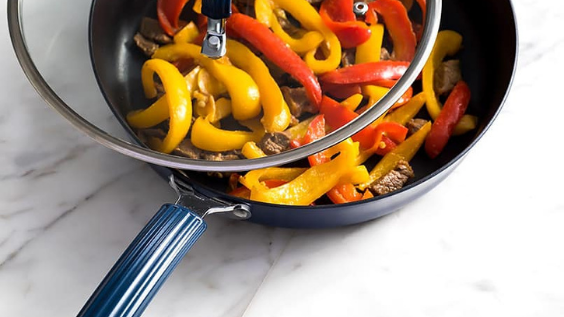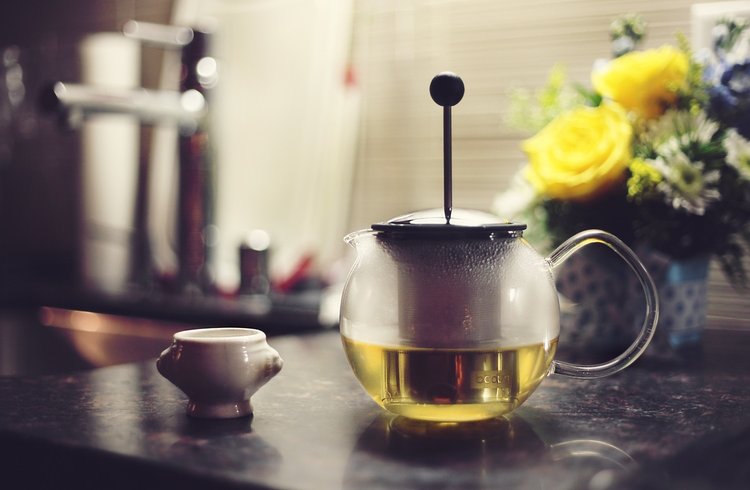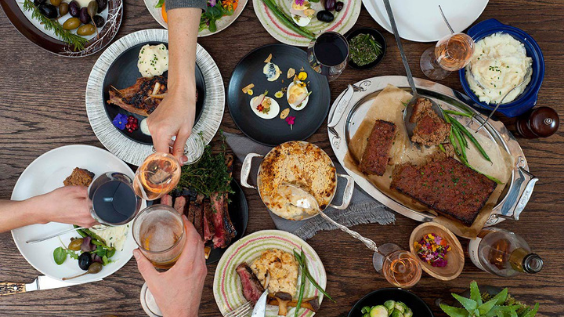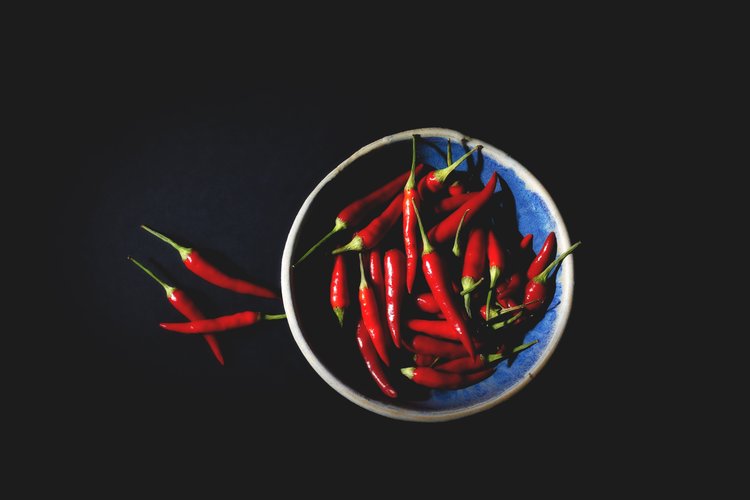
Chinese medicine places a lot of emphasis on dietary therapy as being an integral part of a patients treatment plan. Our last article goes into depth about guidelines for eating a diet consistent with Chinese medical theory. Here we will go further into detail about types of foods that are categorized specifically by their nature (cold, cool, neutral, warm, hot). The energetic nature of specific foods refer to their capacity to create temperature sensations within the body. It is important to remember that this does not relate to the state of the food but mainly to the effect the food has on our body.
This theory of dietary therapy is a great way to seek balance within your diet. In the foundation of this theory all foods can be broken down into yin and yang. Cold foods are more yin and hot foods contain more yang energy. When a person eats more yin foods, their body is able to produce a more yin energy- tending towards colder and slower moving, as eating more yang hot foods, will have the body create more yang energy- tending towards running warmer and more energetic. The thermal nature of food is very important because it impacts our health and generates an internal energy that can be beneficial, or harmful, to our current state. For example is a person can drink a nice hot cup of green tea which has an energetically cool nature, though the warm liquid may initially warm you up, the heat will quickly fade and allow your body to cool down from the nature of the substance just ingested.

If a person suffers from hot painful arthritic joints, spicy hot foods will tend to aggravate their condition and those who suffer from cold pain such as rheumatism may be more aggravated on a cold windy day, and will benefit from eating warm or hot natured foods. This system of thought helps to bring balance to the system by introducing what the body is lacking.
Cold (Yin Foods)
Here are some examples of cold foods- they can be beneficial if you are trying to clear heat or cool the blood, clear toxins or nourish yin. These foods are best suited for people with heat constitutions or experiencing imbalances where heat is predominate.
-Bamboo shoot, arrowhead, banana, bitter gourd, chrysanthemum, crabs, cuttlefish, grapefruit, kelp, lettuces, lotus root, mulberry, persimmon, pomelo, salt and soya sauce, sea clams, seaweed, snails, sprouts, star fruit, sugar cane, tomato, water chestnut, water spinach, watercress, watermelon
Cool (Yin Foods)
These foods contain a yin cooling energy but not as much as the cold foods listed above.
-Amaranth, apple, barley, bean curd, broccoli, buckwheat, cabbage, cauliflower, celery, cheese, Chinese radish, coconut, conch, cream, cucumber, duck egg, egg white, eggplant, lettuce root, lily flower, mango, millet, mung bean, mushrooms, mustard leaf, orange, papaya, pea, pears, peppermint, pineapple, rabbit meat, sesame oil, soybean milk, spinach, strawberry, tangerine, wheat, yogurt

Neutral food
Neutal foods tend to not have an energetic temperature associated with them and can be useful for a wide variety of individuals and health conditions.
-Adzuki beans, beef, beetroot, black sesame, cabbage, carrot, cashew nut, corn, duck, egg yolk, fig, goose, grapes, honey, lemon, lotus seed, milk, olives, oyster, peanut, pistachio nut, plums, pork, potato, quail, radish leaf, rock sugar/ cane sugar, round-grained rice, royal jelly, shiitake mushroom, shrimps, soybeans, sunflower seed, sweet potato, taro, turnips, white wood ear fungus/ black fungus
Warm (Yang foods)
Warming foods by nature help to bring warmth and blood flow to the body. These foods can help decrease pain impacted by cold weather, yang deficiency, improve circulation, dispel cold, raise yang qi and energy.
-Apricot, asparagus, brown sugar, cherry, chestnut, chicken, chinese chives, clove, coffee, coriander, cumin, dates, dill seed, fennel, fresh water shrimps, garlic, ginger (fresh), glutinous rice, goat milk, goose egg, green onion, ham, jasmine, leeks, lobster, longan fruit, maltose, mussel, nutmeg, onion, osmanthus flowers, peach, pine nut, pomegranate, pumpkin, raspberry, rose bud, rosemary, sichuan peppercorn, spearmint, star anise, sweet basil, sweet peppers, tobacco, vegetable oil, venison, vinegar, walnut, wine
Hot foods (Yang)
Hot foods can be very beneficial if used in moderation and with the correct constitution, though too much hot foods can cause things like skin eruptions and redness especially to those already prone to a hot nature.
-Black pepper, chili pepper, cinnamon, ginger(dried), mustard seed

Food for thought
- Green tea is considered to have “cool” energy even though is a hot drink.
- Food that grows underground such as root vegetable tend to be more yin in nature.
- Foods that grow in trees and sunshine tend to be more yang in nature.
- Soft wet foods are more yin, while hard dry foods are more yang. (Dried Ginger is warmer than fresh ginger, yet both are warming and yang in nature)
